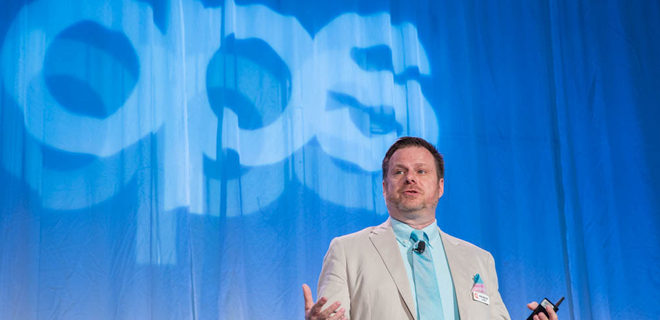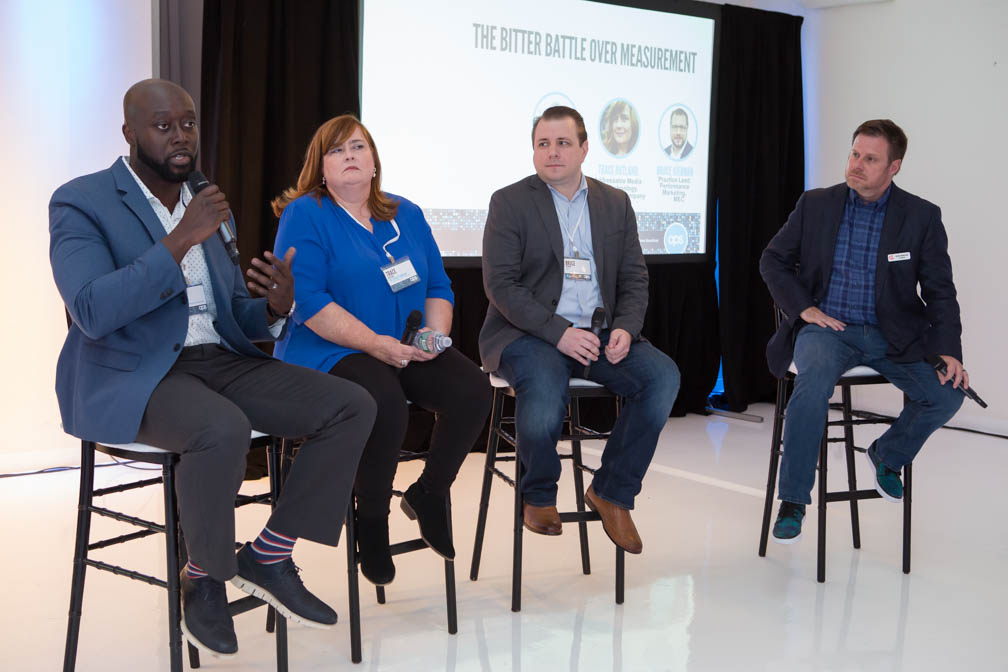
If you bother Gavin, Brian and I while we’re in the throes of preparing for the day-and-a-half military precision exercise that is Ops, we’re going to complain about the number of speakers to wrangle and calls to make. I mean with 40+ sessions and the 70+ speakers, it’s a bit much.
But the truth of the matter is that we enjoy this part of the job in part because we get to talk to all these amazing people who so generously offer up their time and expertise, and because we get to connect the dots between the sessions we work on and see the underlying currents that drive our industry.
Yet for all the calls I was on and all the people I spoke with, I wouldn’t have expected a bunch of ad tech experts to so often use the word “story.”
I’m not referring to someone telling how something had come to pass, like how Jeremy Steinberg told the story of how IBM saw the potential of The Weather Company’s data and how Watson and artificial intelligence are impacting all areas of our lives including media. No, the context of the word story was always in relationship to helping a client understand a unique offering.
Our second session at the Leadership Forum was about measurement and Jeff Adusei, Senior Director of Advertising Consumer Data Solutions at Time, Inc., spoke of how their use of a universal ID across their properties allows them to tell a unique story only they can tell to their clients. Brie Manakul, SVP of Revenue Operations of Nucleus Marketing Solutions, shared a similar strategy across all their newspaper partners.
We all tell such stories. It’s a part of our pitch. If we’re a publisher, our story is how we know our audience. If we’re an agency, it’s how we understand to reach that audience. What was particularly interesting this year was that my panelists always brought up the need to tell a story as a response to Google and Facebook, the dreaded Duopoly.
The numbers prove out that the duopoly is now top of mind—not just in the C-suite but in the ad operations department. Their scale and efficiency for buyers are unparalleled and the rest of us fight for the scraps. Ops had two sessions dedicated to the Duopoly, though I’m sure the term came up in most of them. In one of the sessions, “Platforms: Can’t Live With ‘Em, Can’t Leave ‘Em,” the split in the panel was between simply accepting the Duopoly’s dominance and mastering the opportunities, or building a compelling story to tell about why someone should pay attention to you.

In one discussion I had in preparation for the event, I asked an agency person about the Duopololy’s potential to circumnavigate an agency and work directly with a brand. I’m paraphrasing the response, but it was along the lines of: “You have to tell them a story. The full story. Google and Facebook aren’t going to share the importance of context – they don’t have the great context a premium publisher has.”
Mark Howard, CRO at Forbes, demonstrated this very concept by sharing how they had designed their site to now work on aspect ratio versus fixed ad sizes. Whether the agency provides the creatives to these new specs or the Forbes’ creative services team handles it, the ad units are designed to fit beautifully within the design of the page.
Take a moment to think about that—ads designed to work within the design of the page, not just get slapped into place. It’s a win-win for the brands and the users when all the elements work well together.
Operations people may be described as “technical, but not technical enough to be programmers, business-focused, but not so much so that they become sales people or just take the management route.” As we try to figure out how to make digital advertising “work,” I think a new attribute to look for in future operations leader is storyteller: someone who can explain complex concepts in easy terms and help make the case for what their company can do to their clients.
Perhaps this is the start of the ad tech renaissance we so desperately need?